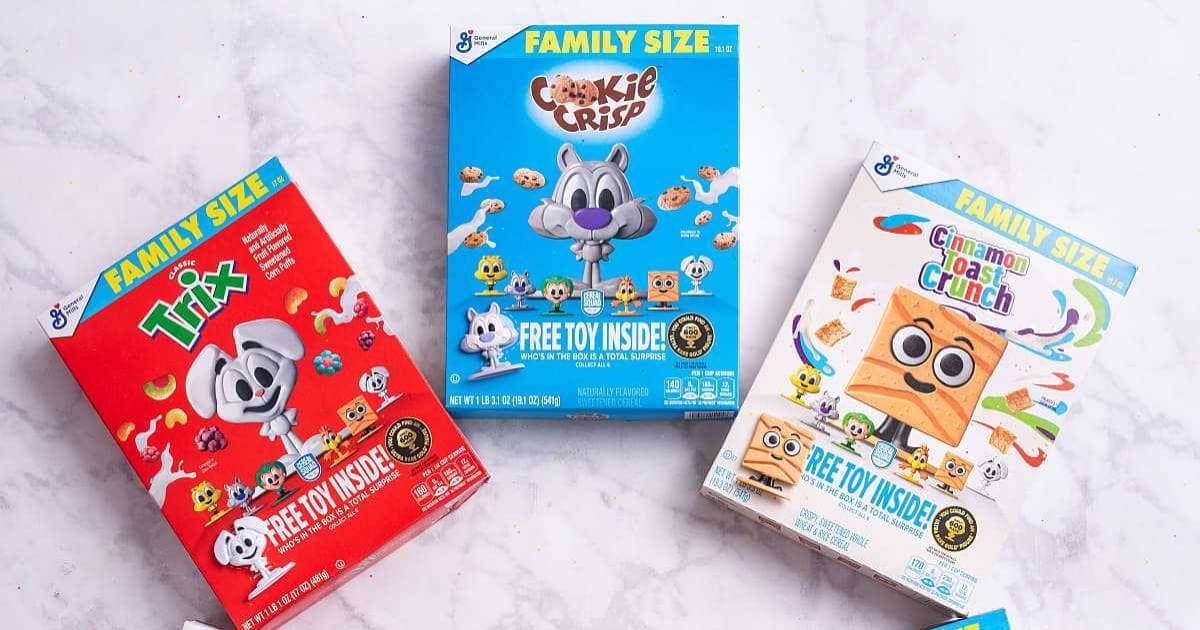Cereal Brands Increase Appetite for Licensing

While candy and cookie brands have long cornered the market for licensed cereal, there are signs that toys and celebrities are entering the mix.
For the most part, these are limited-time offers tied to charities. Last week rapper Snoop Dogg unveiled Snoop Loopz cereal, some profits of which will go to Doors of Hope, an organization addressing homelessness in Los Angeles County. And the 285-location Hy-Vee grocery chain recently partnered with NFL players from the Kansas City Chiefs and the Minnesota Vikings for a cereal, the sales of which are expected to raise nearly $30,000 for underserved youth in their communities.
These cereals are unlikely to unseat top sellers from the likes of Kellogg’s, General Mills, and Post Holdings—despite Snoop Dogg’s boast that “if you like [Kellogg’s] Fruit Loops you’ll love” his cereal. The recent agreements are, however, a sign that the ultra-competitive cereal aisle (which is governed by slotting fees paid to grocers) will become even more crowded as cereal makers seek to cash in on cache gained with consumers during the pandemic.
General Mills, for example, has a licensing deal with MGA Entertainment. The toy company’s LOL Surprise brand launched cereal with General Mills in June. An 18-ounce version gained an end cap at Walmart, while a 10-ounce box was front and center recently in a display in the cereal aisle of Stop & Shop in Ridgefield, CT. LOL Surprise cereal features three different box designs and will be available through year-end. Walmart, however, will carry the cereal into 2023.
“The pandemic drove manufacturers to reinvent themselves and right now in (cereal) it is leaning toward licensed,” said Mindy Puente-Escalera, SVP Global Licensing at MGA. “Historically, the easy marriage has been to leverage candy or cookie brands with cereal but now it’s [about] how do you reinvent yourself? That’s why [cereal makers] are leaning into different categories. In the case of LOL, it is definitely purchased by the mother in knowing that her daughter is interested in the LOL brand and General Mills is a trusted brand of hers and that influences her decision to pick this up.”
The tilt toward licensed candy and cookie brands, which have long graced cereal boxes, really accelerated in late 2018 when Post Holdings launched Oreo Os, Nutter Butter, Chips Ahoy, and Honey Maid cereals. It has since added other brands, including Twinkie (Hostess Brands).
In its recently completed second quarter, sales of Fruity Pebbles—which Post Holdings first licensed from Hanna Barbera in 1971—benefitted from consumption strength as the company’s branded market share rose to 20%, CEO Rob Vitale said. Total sales increased 22% to $1.5 billion.
But not all partnerships go so smoothly. Kellogg’s recent move to makes its Frosted Flakes mascot, Tony the Tiger, available to Twitch’s Brand Partnership for streaming drew some criticism since Twitch’s audience includes teens and tweens.
“It is not right for marketers to take cynical advantage and target those that society protects just because regulators don’t know their tweens from their teens,” said Gary Pope, co-founder of the family-focused marketing agency Kid Industries. “TikTok and Twitch should both know and do better.”




